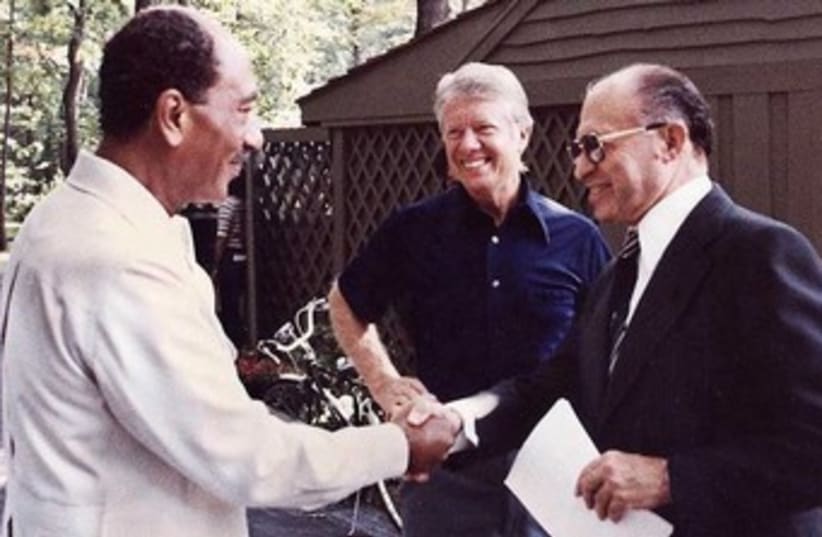The Tamarod ("Rebellion") movement in Egypt has joined a campaign calling to stop US aid to Egypt, and to cancel the 1979 Camp David peace treaty with Israel, Daily News Egypt reported on Saturday.The campaign is in response to "unacceptable" US interference in Egyptian political affairs, after US President Barack Obama decided to cancel a joint drill with the Egyptian military in response to the outbreak of violence in the country earlier this week.While the bi-annual joint army exercise was cancelled, the US stopped short of canceling its annual $1.3 billion aid to Egypt.Tamarod, who played a major role in the ousting of Egyptian President Mohamed Morsi, demand the Egyptian regime to hold a referendum on banning US aid, cancel the peace agreement with Israel, and reword security-related treaties to allow Egypt to revive its national sovereignty.The movement claims that Israeli and international peacekeeping forces in Sinai prevent the Egyptian military from sending more forces to the peninsula to stop terrorist activity in the area.Daily News Egypt quotes the movement's media coordinator Mai Wahba as saying the campaign will collect signatures from people, and that there was no timetable for the campaign yet.The "No to US aid" campaign has already gathered 300,000 signatures.Israel has opted to stay silent on the turmoil in Egypt to avoid disrupting strategic security cooperation with the Egyptian military.Prime Minister Binyamin Netanyahu had aides instruct cabinet ministers to avoid public comment about Egypt, according to an official who spoke on condition of anonymity."Israel and the United States see the situation in Egypt very, very differently and justifiably the prime minister wouldn't want Israeli cabinet ministers to publicly criticize American policy," Giora Eiland, a former national security adviser, said on Channel 2.In private, one senior Israeli official expressed alarm at US President Barack Obama's condemnation of the bloodshed in Egypt and cancellation of a joint military exercise with Cairo."Eyebrows have been raised," the official said.Israel worries that any sign of wavering US support for Egypt's military may embolden Islamist militants sympathetic with the Muslim Brotherhood, ousted by the Egyptian army after a year in power.Eiland backed the crackdown by Egyptian army chief General Abdel Fattah al-Sisi on the Brotherhood this week."Sisi in the situation he faced, had no choice but to do what he did," said Eiland, adding he thought Western outrage at the scale of the bloodshed was understandable. Almost 800 people have been killed so far.Israel wants to avoid any disruption of its security cooperation with Egypt, which stems from the 1979 peace treaty - the first of only two such accords between Israel and Arab countries.Military ties with Egypt have helped Israel strategically in a region where it is otherwise largely isolated, as well as rein in weapons smuggling to Palestinian militants in Gaza, which is ruled by Islamist group Hamas.That cooperation has remained intact despite turmoil since Hosni Mubarak was toppled in 2011. Both sides are anxious to curb growing lawlessness in Sinai and Eiland said intelligence officials continued to work together to curb attacks from Sinai.Israel says rocket strikes on towns across its southern border have increased from Sinai. The Iron Dome missile-defense system shot down a rocket fired at the resort of Eilat earlier this week.
Magles Shoura al-Mujahideen, a hardline Islamist group, said it carried out the attack in retaliation for the deaths of four militants in an airstrike in Sinai a week ago. Israel denies any role in that attack.
Eiland did not rule out "a one-off Israeli action" to take out a rocket launcher if Egypt were unable to prevent an attack in time, but thought Israel could rely on Egypt's military.
